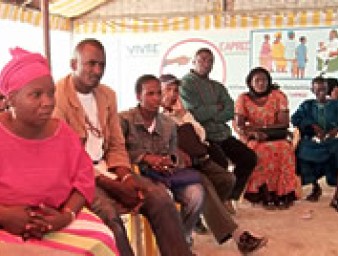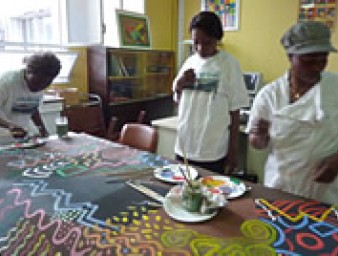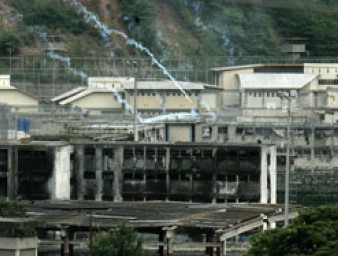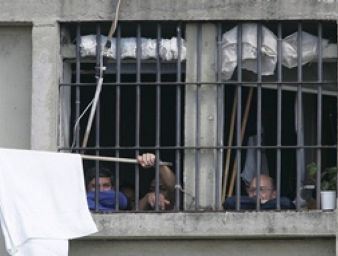Refugee crisis in Europe triggers torture victim’s painful past
09 May 2016

Seeing large groups of refugees on the move in Europe sets off harrowing triggers for Azra.* The former Bosnian refugee and torture victim says, “I see myself in them, although I have no strength to watch them even on television.”
She was 33 when the war came to her village between Tuzla and Zvornik in northeastern Bosnia and Herzegovina. “Pictures, memories and feelings from my own past are occurring again and I have to take tranquillizers to stay in control,” she adds.
While Bosnian Serbs and Bosnians had lived together peaceably in her village, things changed in April 1992, at the start of the war.
“I was expelled from my house and had to live in the woods for a time. When my mother and I went back, we found most of the people I had known all my life slaughtered, burned and massacred. The smell of burning flesh and destruction was terrible.”
Her mother needed medicine so Azra dressed as a Serbian woman and walked about 10 kilometres to Zvornik to get it. Then a Serbian neighbour spotted her.
When Azra left the shop, Serbian soldiers followed her and led her over the bridge crossing the Drina river to Mali Zvornik in Serbia.
Then the unspeakable began happening. “They took me to the cellar of a house where there were more soldiers and they tortured and raped me, again and again. They beat me with chains and guns; they completely humiliated me and treated me like an animal. After about six months of this torture and rape, I don’t remember exactly how long, they left me for dead,” she remembers.
Azra’s story is one of nine featured in a new publication, From Horror to Healing: A life-saving journey supported by the UN Fund for Victims of Torture. UNVFVT, which marks its 35th anniversary this year, is managed by the UN Human Rights Office in Geneva, Switzerland.
The stories were gathered from organizations supported by the Fund, which in turn give direct medical, psychological, social and legal rehabilitation services to around 50,000 victims of torture and their family members each year.
Azra’s didn’t die. A neighbour woman who was aware of the situation helped her escape. She was then taken to free territory in the trunk of the woman’s friend’s car.
“I was completely disoriented and wanted to die,” says Azra. “My mother, who was already in Tuzla, almost died from shock when she saw me because she had been told I had been killed.”
Doctors cared for Azra with compassion and good medical help. But, she needed more specialized help than they could provide. That’s when someone told her she might be assisted by Vive Žene, an organization that supports and treats victims of war and torture. The organization receives funding from the UNVFVT. It turned out to be a lifeline for Azra.
“I had the feeling that I was dirty and not worth anything, but through therapy at Vive Žene I started to come back to myself and feel like a person again. For a long time I had nightmares and a deep fear that I would be captured again.”
Azra needed many years of psychotherapy and social support because her mental and physical health were seriously damaged.
She has come to regard the professionals of Vive Žene as her new family because they are there for her when she needs them. This is especially true since her mother died some years ago and she has very little contact with her brother and sister. All her other family members were murdered.
“Now I live in Tuzla and have made few new acquaintances, but my life is quite different than before. Without Vive Žene I don’t know what would have become of me,” she says.
She says that she still needs her therapist, especially in light of the triggering images of refugees: “I know from my own experience that refugees are not really wanted, but I also know that no one wants to become a refugee. I hope they will find warmth and support in the countries in Europe like I found in my country, Bosnia and Herzegovina.”
Since 1981, the UNVFVT, which is managed by the UN Human Rights Office in Geneva, has channeled over US$168 million into more than 630 organizations giving direct medical, psychological, social and legal assistance to torture victims.
*Azra’s name has been changed for her protection.
9 May 2016




